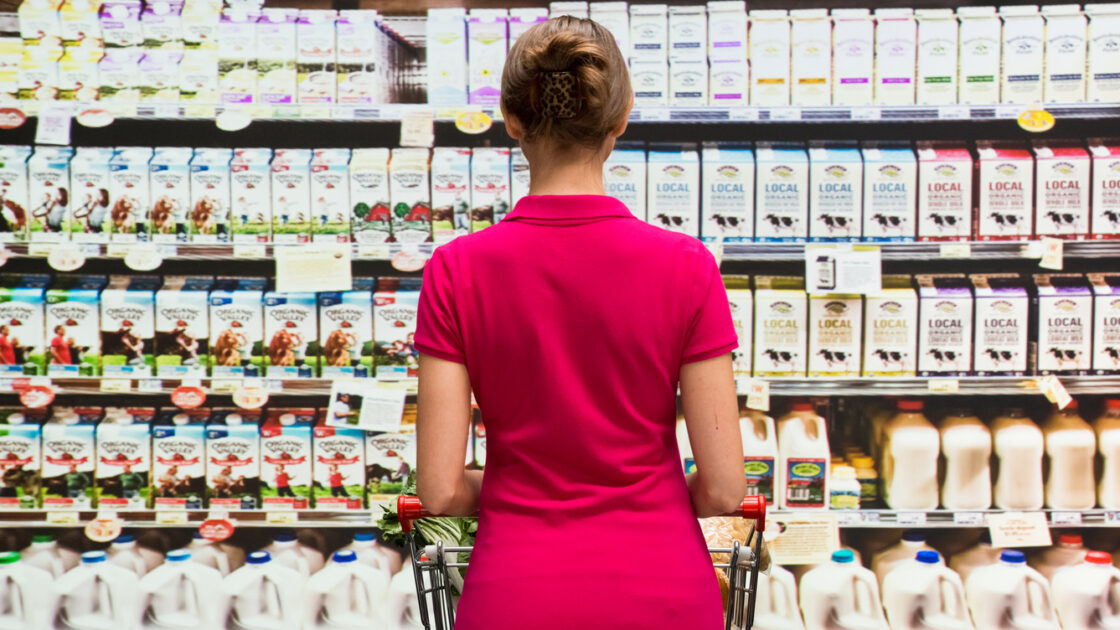Plant-Based Foods Under Livestock-Industry-Led Attacks

As the sales of nondairy milks and plant-based proteins continue to outpace growth of animal-based products, the livestock industries are pushing back.
A recent letter signed by 34 lawmakers with the support of the nation’s leading dairy associations asks the FDA to reconsider allowing the use of the word “milk” on products derived from plant-based ingredients such as nuts, beans, or seeds.
The letter urges the agency to revert to its own identification of products using the word “milk” as being the “lacteal secretion, practically free from colostrum, obtained by the complete milking of one or more healthy cows.”
The letter states that manufacturers of plant-based “products” mislead consumers by violating cow milk’s “standard of identity”, a move that the group says is harmful to the dairy industry.
Using the word “milk” on nondairy beverages that come from plants is not misleading, cited a judge in a 2015 case against Trader Joe’s over the grocery chain’s soymilk, of which the judge said “no reasonable consumer” would erroneously confuse with milk from a cow.
The request to the FDA is similar to a recent lawsuit filed by Unilever against Hampton Creek‘s eggless mayonnaise. In its complaint, Unilever, which makes best-selling Hellmann’s mayonnaise, said Hampton Creek’s Just Mayo violated the agency’s definition of mayonnaise, which includes eggs. Hampton Creek’s product uses pea protein in place of eggs.
Unilever eventually dropped the lawsuit and recently launched its own eggless mayonnaise, which boasts in large letters across the front of the jar, the word “vegan” in what seems to be a clear attempt to attract the rather die-hard demographic of the plant-based market segment (the word “vegan” is most often attached to the ethics of eschewing animal products while “plant-based” tends to resonate more with shoppers seeking healthier alternatives to meat, eggs, or dairy).
“The Court agrees with defendants that the names ‘soymilk,’ ‘almondmilk,’ and ‘coconutmilk’ accurately describe defendants’ products,” U.S. district court judge Samuel Conti wrote when he dismissed against WhiteWave foods, the maker of Silk soy milk over use of the word “milk” on its nondairy products. “As set forth in the regulations, these names clearly convey the basic nature and content of the beverages, while clearly distinguishing them from milk that is derived from dairy cows.”
The pushback against the booming plant-based industries isn’t just limited to the U.S. market, either. In Germany, recently, the state’s agricultural minister Christian Schmidt voiced his request for a ban on the use of meat names to describe plant-based foods, such as “vegan sausage,” Germany’s newspaper Bild, reports.
“I don’t want anyone to pretend that these pseudo-meat dishes are actual meat dishes,” Schmidt said.
“I favor them being banned in the interest of clear consumer labeling,” he said.
Schmidt has also pushed for schools to add more meat to its lunch menus, a controversial move that clearly supports an industry-led agenda to suppress the sale of plant-based proteins.
The livestock industry continues to face hurdles, not just from the growing interest in plant-based foods, even from the top meat producers, like Tyson’s recent investment in Beyond Meat, but from significant threats like last-resort antibiotic-resistant bacteria, environmental issues tied to livestock production, and animal welfare issues in farms and at slaughterhouses.
A growing body of research points to the health benefits of consuming fewer animal-based products and instead eating a well-balanced diet focused on fresh fruits and vegetables and whole-food plant-based ingredients.
Recently, the largest group of nutritionists and dietitians said it supported both vegetarian and vegan diets for “all stages of the life cycle” including pregnancy, breastfeeding, and childhood.
Find Jill on Twitter and Instagram
Related on Organic Authority
Vegan Meat is Now the Biggest Trend in the Tech Industry
Tyson Foods Invests $150 Million in Fixing the Food System with Plant-Based Protein
Can Plant-Based Foods Save Our Food System?

